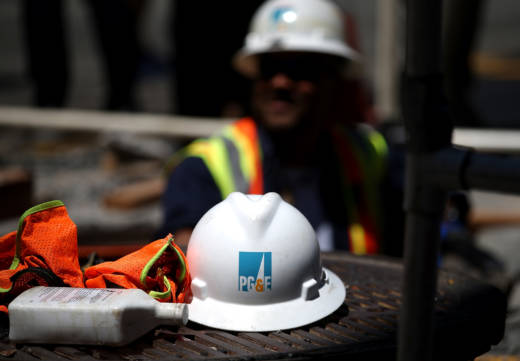“It’s knowledge transfer,” said Paul Almeida, president of the AFL-CIO’s Department for Professional Employees, and a critic of the practice. “They’re just transferring the knowledge of the business to these foreign countries through these outsourcing firms.”
The outsourcing firms used by companies like PG&E to offload IT jobs are mostly based in India and get thousands of H-1B visas for their workers. This shouldn’t happen, Almeida said. The visa is designed for high-skilled workers who can’t be found in the U.S., not people doing routine IT work.
Almeida said these outsourcers are abusing the H-1B system and undercutting American workers like those at PG&E.
“When this was happening 10 years ago, it wasn’t as blatant,” Almeida said. “But it has gone on for so long. It’s become part of the business model.”
PG&E is far from the first to use a contractor that depends heavily on H-1B visas. Disney has done it. So has Toys R Us, other utilities like Southern California Edison, and recently a public university. UC San Francisco is outsourcing IT jobs right now. The contractor there initially brought in a transition team to understand how the university’s IT systems work — some of the workers were on H-1B visas.
“Nothing has happened that would deter companies from taking this action,” said Daniel Costa, director of immigration law and policy research at the Economic Policy Institute.
Costa said there have been attempts to reform the H-1B visa program. The Department of Labor and Department of Justice investigated Southern California Edison for the use of H-1B visas, but neither found wrongdoing.
Costa says those findings are disputable, adding that they encourage companies to outsource with the H-1B.
“It’s about the bottom line,” Costa said, “and if companies can do it, they will do it. If the legal framework continues to allow it, then it will continue to happen.”
There has been a lot of anger about this kind of job loss. It’s a theme that President Trump has tapped into, and he’s signaled he plans to change the H-1B in some way. Members of Congress from both sides have introduced reform bills. Meanwhile, the IT industry and workers are anxiously waiting to see what will happen.

